There is something to learn everywhere you go and from everyone you meet.
Kyoto Institute of Technology
Nguyen Ngoc My (จาก Viet Nam)
※บทสัมภาษณ์ ของปี 2022
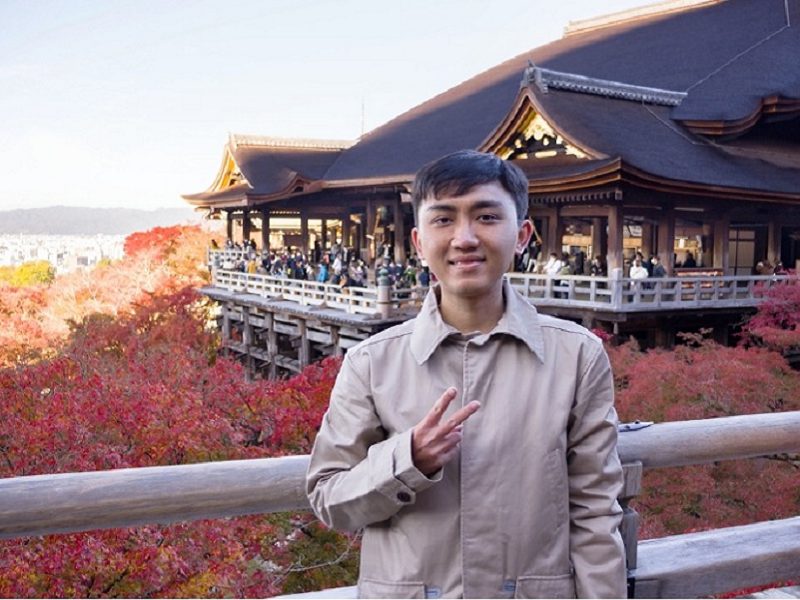
How did you decide where to study abroad? Please tell us why you chose Kyoto in the end.
I met my current professor in Vietnam and attended a presentation about his research. Even though his was a new field for me, I enjoyed the topic and wanted to explore it more. So I got in touch with him and decided to study in Kyoto. I chose Kyoto because it is a cultural significant place in Japan with a great academic reputation.
What are you currently studying? If you’ve already graduated, what did you study before?
I am a graduate student at Kyoto Institute of Technology. My research is about computer-aided diagnoses of diseases and abnormalities from medical images like MRIs and ultrasounds. The research aims to support medical specialists in confidently making clinical decisions.
Before studying abroad, what kind of image did you have of Kyoto?
Before coming to Kyoto, I tried to translate the meaning of Kyoto and found out that it means “the capital.” After watching some movies, I thought I could see the old architecture, meet geisha, shinobi, and samurai. As I went on the internet, I learned more about modern Kyoto.
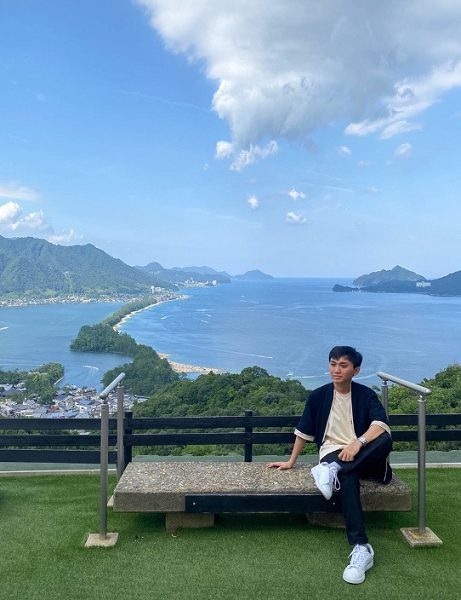
How did your image of Kyoto change when you actually studied abroad here?
When I arrived, I found Kyototo be beyond my expectations. Kyoto not only has old architecture, but also modern buildings. I finally got to see maiko walking in the streets of Gion, but haven’t had the chance to see shinobi or samurai (laughs). The old capital is a blend of traditional and new lifestyles, which is interesting to me.
What were you nervous about before studying abroad? Please tell us in detail.
I was worried about the language and cultural differences. Japanese is a difficult language, but learning Japanese is the key to fitting in with the local culture. Also, Japan is known for its high level of privacy, particular communication styles between insiders and the outsiders, and its manners. So I dug deeper into the manners, culture, and rules to know what I should or should not do during my stay.
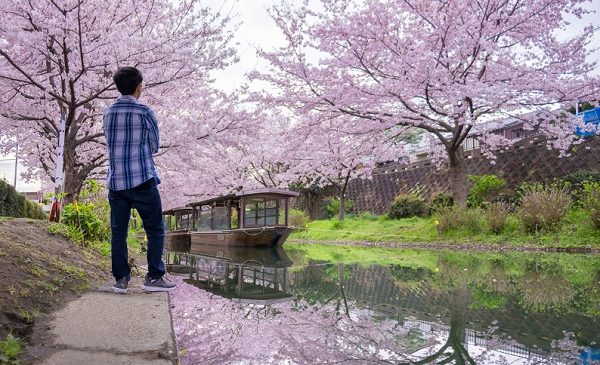
What about Kyoto makes you glad to have come here? What has made an impression on you?
Well, I love Kyoto for its culture, academics, and nature. First, Kyoto has a well-preserved culture, such as thousand-year-old temples and shrines, traditional arts like tea ceremony, calligraphy, kimono, etc. I hope Kyoto will continue to maintain these values for years to come.
Additionally, the academic environment in Kyoto is amazing, with lots of universities. I was surprised when I found out Kyoto was the home of many Nobel laureates and the winners of other distinguished academic awards.
Lastly, the nature here is beautiful with the special sceneries of the four seasons. It was in Kyoto that I first saw the sakura blossom, autumn leaves, and winter snow, which are such unforgettable memories.
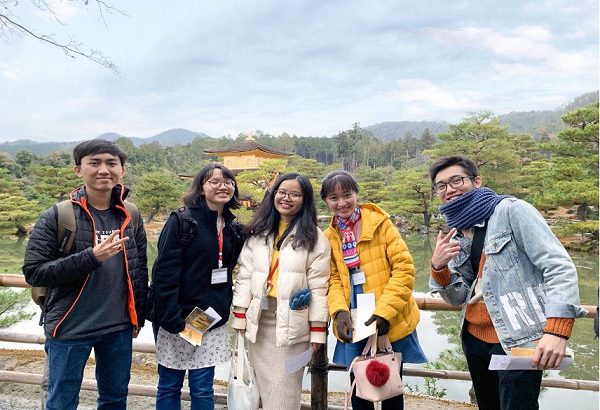
Was there anything especially difficult about studying abroad?
When they first arriving in Japan, many students needed to complete lots of registration paperwork. I got many letters in my mailbox, and it took me so much time to figure out what they meant. In the beginning, it was challenging for me to keep up with the learning materials because this is a new field for me. But thanks to the support from my professors, I was able to overcome this academic difficulty. Kyoto is an amazing professional research environment and has better associations with corporations outside the academic world.
In terms of daily life in Kyoto, travelling by bus could be challenging because the names of the destinations are written in Kanji, so I usually took the wrong bus. But the longer you stay, these difficulties will become mitigated, so no need to worry!
I studied Japanese for several months before I came to Japan. Katakana is still challenging for me, especially visiting stores like Uniqlo and trying to read the tags (laughs). My university provides a Japanese tutoring program. Each foreign student will get support from a Japanese student to help with the administrative documents and help us newcomers, to get familiarized with a new environment. They are very helpful. I am grateful for this support. Besides, I still keep in touch with some classmates, although some of them have graduated. Talking to them also helps me to improve my English, Japanese and get to know more about Japan. I have overcome cultural differences thanks to communication in this supportive and diverse environment.
What do you think is most appealing about studying in Kyoto?
Kyoto is a great place to pursue academic expertise while enjoying the culture, food, and fresh atmosphere. I enjoy the seasonal foods too. I wasn’t able to eat natto for the past 2 years, but I recently got used to it (laughs).
How do you want to utilize your study abroad experience in the future?
I would like to use my experience for my future career. I look forward to sharing it with the younger generation, especially students who want to study abroad. Through my journey, I have realized something: “There is something to learn everywhere you go and from everyone you meet.”
What is your post-graduation dream?
I hope my friends in Japan and I can cooperate regularly in the future. I would love to participate in study fairs about the exchange programs between Japan and Vietnam. Lastly, I want to inspire the young generation in Vietnam, especially excellent students in the countryside, to think about studying abroad. Countries have borders, but dreamland has no borders. The world is vast!
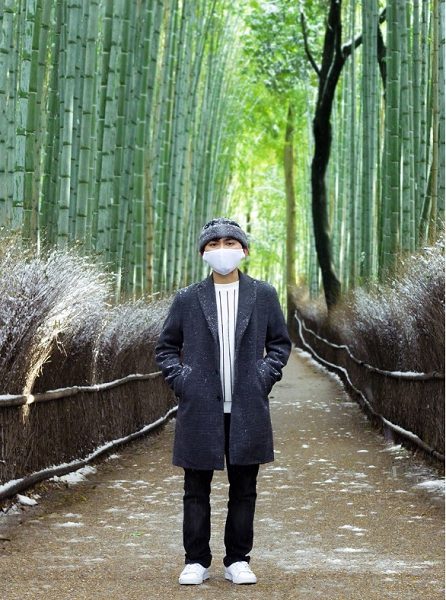
Lastly, please give a message to students considering studying abroad in Kyoto.
“There is something to learn everywhere you go and from everyone you meet.” In Kyoto, your learning experience will be more enjoyable. Kyoto has a thousand-year historical value with highly ranked universities and wonderful landscapes. The city is waiting for you. Please come and discover it for yourself!





